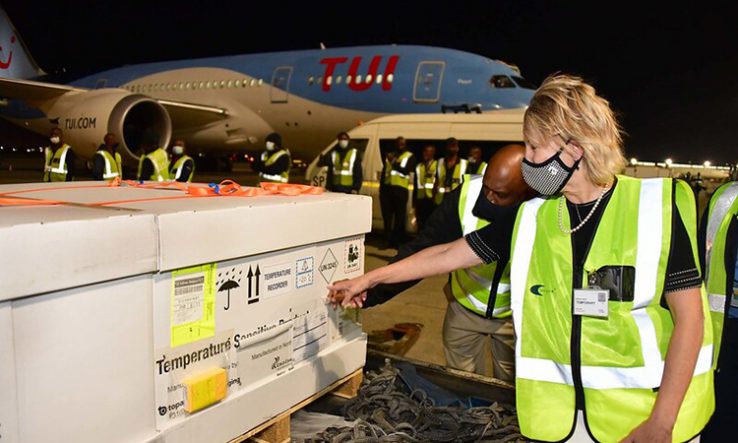
Image: Government of South Africa [CC BY-ND 2.0], via Flickr
South African HIV stalwart urges investment in the continent’s health capacity
Africa will not vaccinate its population against Covid-19 by using “colonial structures”, one of the continent’s leading health researchers has warned.
“We need to invest in our own structures and not rely on colonial structures that don’t serve us optimally,” said Glenda Gray, the head of the South African Medical Research Council.
Gray was speaking during a webinar organised by Unesco, the UN science agency, on equitable Covid-19 vaccine access for Africa on 14 April. “Any slow rollout of Covid-19 vaccines in Africa will impact the rest of the world,” she said.
Gray said that conducting vaccine clinical trials in Africa is critical, as it builds local experience, examines side-effects, gives African regulators experience, and helps doctors and nurses manage adverse events. “We want access to vaccines that are safe and easy to implement on our continent, so gathering local data is important,” she said.
Gray said African countries need to accelerate local manufacturing ability so they can be independent and scale up vaccination for the current and future pandemics. She spoke the day after a two-day conference on scaling up vaccine manufacturing in Africa, featuring several African heads of state.
However, health officials at the meeting warned that vaccination in Africa is fraught with challenges. John Nkengasong, the head of the African Centres for Disease Control and Prevention, said that Africa will need 1.4 billion Covid-19 vaccine doses and that projections predict that at best 60 per cent of Africa’s population will be vaccinated by the end of 2022 or beginning of 2023.
Africa is “not doing well at all” in terms of its Covid-19 vaccination programme, Nkengasong said. He warned that Kenya is already facing a third wave of infections, while Ethiopia, which was initially hit relatively mildly, is experiencing a more severe second wave.
Presenting Covid-19 vaccination data up to 12 April, Ann Lindstrand, the head of the World Health Organization’s essential programme on immunisation, said that 43 Africa countries have started vaccination. Only 32 million vaccine doses have been received on the continent, she said, about half through Covax, an international initiative to increase vaccinations in poorer countries, and the rest through bilateral agreements. By contrast, Canada already has enough doses to cover its population nine times over, and 77 per cent of the world’s 815 million doses have been administered in 10 countries.
Hubert Gijzen, Unesco regional director for Southern Africa, said vaccine nationalism remained a concern, with Africa falling behind. “We see that most African countries face huge difficulties to ensure access to vaccines.”